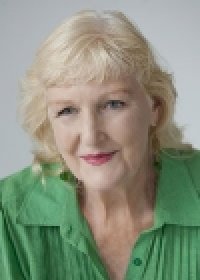Judith Armstrong

Judith Armstrong’s most recent book, War & Peace and Sonya, has just been republished in London by the Unicorn Press.
There is a wonderful sense of liberation in the title of this short novel: a sense of being able to gaze at a distant blue horizon and sniff salty sea air. It provides an exhilarating contrast with the atmosphere of claustrophobia suggested in Notes from Underground, Dostoevsky’s work of similar length and loosely comparable themes. But whereas the Underground Man rarely ventures into the street ... (read more)
Novel, autobiography, memoir? I imagine poet and editor Manfred Jurgensen dealing impatiently with the question – does categorisation matter? Aren’t books to be judged by intrinsic worth rather than labels? Up to a point, but in Book One especially (of two) there is enough equivocation to be annoying.
The central figure, a boy called Mark, reads like a gossamer-veiled recreation of his author ... (read more)
The 120,000 expatriate Italians living in Australia, all of them newly entitled to vote in the recent election, contributed significantly to the knife-edge defeat of Prime Minister Silvio Berlusconi in April 2006. Before the counting of all such votes in the four electoral regions into which his own government had divided the world, Berlusconi looked to have a one-seat majority. Then the votes of ... (read more)
In 1685, in São Paulo, Brazil, a boy was born called Bartolomeu Lourenço de Gusmão. Sent north to Bahia to study with the Jesuits, who had constructed, in the steep-cliffed port of Salvador, an amazing ‘levador’ capable of hauling goods and people from ground-level to the heights above, Bartolomeu learned as much about physics as theology. Finding the fathers’ dedication to higher things, ... (read more)
If two swallows do not a summer make, two novels, no matter how similar, are no doubt insufficient to start a new literary sub-genre (no matter how ‘sub’). On the other hand, fashion is said to reflect the Zeitgeist; and biography, in this turbulent millennium, has become both favoured and fashionable. Is it possible then that quite soon a small shelf of the local library’s collection will b ... (read more)
Marion Halligan is a long-established fiction writer with an impressive list of publications. Even readers with only partial familiarity will recall that many of her novels have been informed by autobiographical material reflecting personal leanings and experiences, particularly her fondness for France, food and cooking, and the profound grief she sustained when her husband died. But in 2006 she c ... (read more)
Azhar Abidi’s first novel, Passarola Rising (2006), told of some amazing adventures in a seventeenth-century flying ship, and it was a delight. His new novel could hardly be more different, yet gives just as much pleasure. It also tells a more probable story.
Abidi is a Pakistani now living in Melbourne, where he maintains a family and a job in finance, as well, apparently, as meditating on the ... (read more)
Diane Armstrong is a prolific, award-winning journalist whose book-length publications began with a memoir of family history, Mosaic (1998), and The Voyage of their Life (2001), set on the SS Derna, which brought Polish-born Armstrong, her parents and 500 refugees to Australia in 1948. In 2004 Armstrong turned to fiction with Winter Journey, about a Polish-Australian forensic dentist. Now we have ... (read more)
Writing as Eva Sallis, Eva Hornung earned enough prizes and shortlistings to send a reviewer sprinting shame-faced to the nearest library. Fortunately, Joyce Carol Oates, with her inordinately prodigious output, sees no grounds for guilt: ‘Each book is a world unto itself, and must stand alone and it should not matter whether a book is a writer’s first, or tenth, or fiftieth.’ Thus, while a ... (read more)
